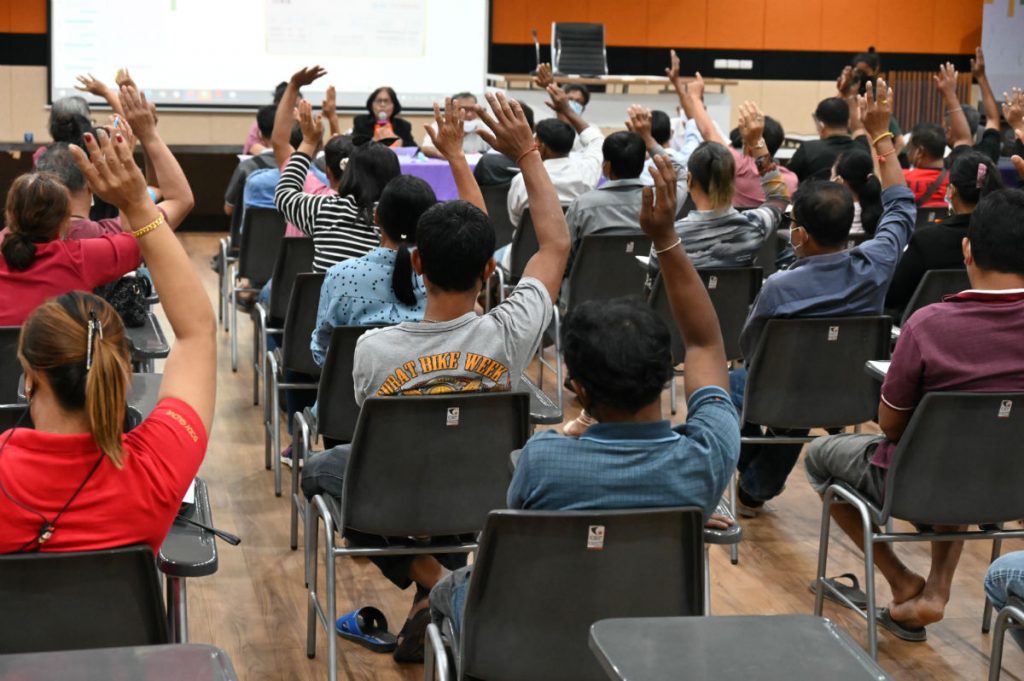
Thailand is the largest rubber producer in the world. Fair Rubber e.V. has two smaller supplier partners there, followed by a third in the Surat Thani region at the beginning of 2022. In May, for the first time after the withdrawal of the Corona restrictions, a delegation of the Fair Rubber Association traveled to the region to exchange information with rubber tappers and small farmers of the newly founded Surat Thani Sustainable Rubber Association (SRA) about current developments in the Fair Rubber program. The central event during the visit was the general meeting, which was attended by around 100 people. The agenda included an expansion of the board of directors, decisions on the distribution of Fair Rubber premium payments and the discussion of a Fair Rubber development plan.
The enthusiasm of the smallholders to be able to make independent decisions about their own concerns was evident everywhere. The Fair Rubber Association requires its smallholder supplier partners to submit a development plan describing measures to improve the local situation. The association leaves the content of the plan to its local partners – they know best about the needs and requirements of the producers. The first draft of the plan in Surat Thani provides for a mix: It includes direct payment of the fair trade premium to increase the income of tappers and small farmers, social community projects and the promotion of ecological measures, for example by providing organic fertilizer and seedlings for rubber cultivation in the agroforestry system. In the coming months, the plan will be refined and then adopted. In addition, the SRA continues to expand its administrative and management structures to make the most effective use of the fair trade premium payments that come with high demands.

The producers united in the SRA supply the rubber to Fair Rubber member Reckitt, which has a high latex demand for the production of condoms. More than 600 small producers are now members of the SRA. In order to sustainably meet demand, the local association is aiming for 1,000 members – making the SRA one of the Fair Rubber association’s largest supplier partner.
But smaller supplier partners also play an important role in the Fair Rubber network and are examples of solidarity lived locally. At the annual meeting of the Klong Pom Phatthana 95 Group, another supplier partner in Hat Yai in southern Thailand, the approximately 50 members decided that all tappers and small farmers should receive the same amount of Fair Trade premiums. In this way, producers who produce less rubber – for example, because they have less land or trees – benefit more than those who produce more rubber. Particularly impressive is the decision of the members to forego part of the premium in order to finance medical treatment for a child from the community who suffers from cancer.

With every fair trade rubber product, customers support success stories like the ones described – not through donations, but through conscious purchasing decisions.
